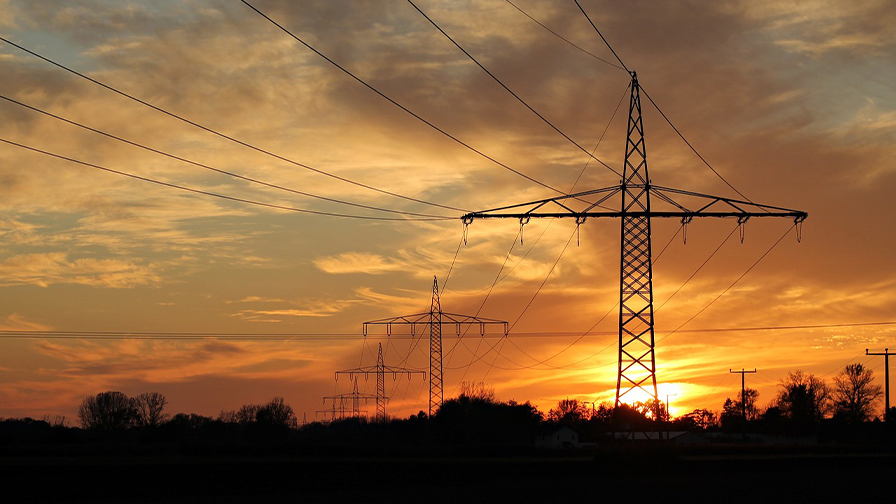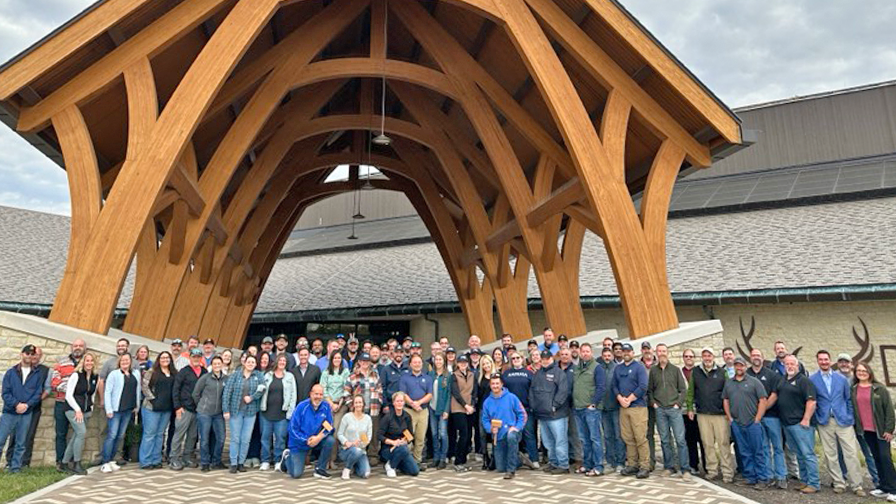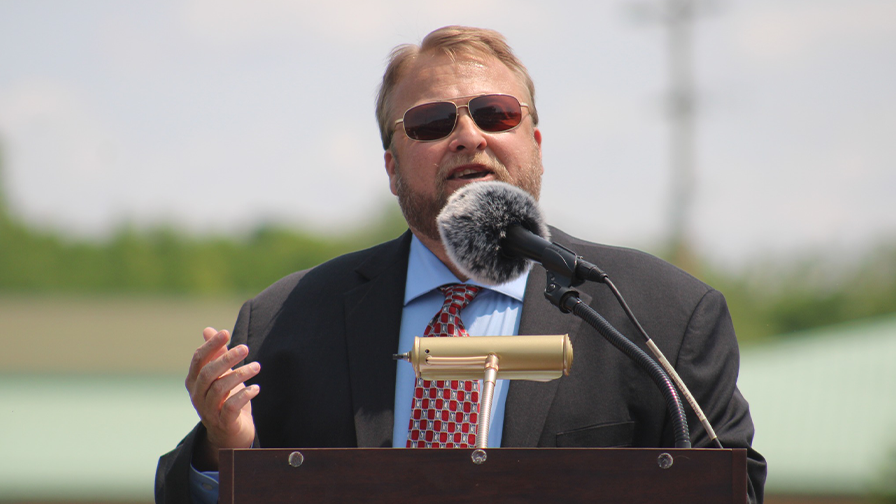Insights on the Future of UVM

Insights on the Future of UVM
By John Wasmer, Executive Vice President of Revenue, ACRT Services
Utility vegetation management (UVM) as an industry has been part of the broader story of U.S. energy for decades. Every day, the many organizations that comprise our industry dedicate their teams, talents, technologies, and time to making the delivery of electricity, water, gas, and data more reliable, secure, and effective.
While we have built a solid foundation of service and accomplishments for our customers and the communities we serve, ours is an industry that cannot for one moment rest on its laurels. We must always be looking toward the future — seeking to identify and act upon the trends, challenges, needs, and risks that may hinder our progress.
To that end, we spent time with subject matter experts in utilities, related service providers, and our own organization to gain their insights into what they foresee for our industry in the months and years to come. This is by no means a comprehensive summary — we have a great deal of work to do, and as the pandemic taught us, the unexpected can still occur.
Demand on the Grid. Demand for electrification is growing as industries seek to reduce reliance on coal, oil, and natural gas. From the forthcoming elimination of small gas-powered engines in California to the continued growth of electric vehicles and the systems that support them, the demand for electric power is rising. UVM will play a role in supporting how utilities expand their capacity to support this demand.
Improving Resiliency. As we monitor the climate, we have to monitor the impact on the industry. Consider the downstream harm that weather-related events — from the damage of hurricanes to the demand of extreme temperatures — can have not only on our industry but also on those we support. Key geographies, when impacted, have an influence — from fuel prices to food supply. Great progress has been made here, such as with storm hardening, but this will continue to be a strong focus for utilities and the UVM industry.
Weather and Climate Impacts on Safety. Climate influences how we protect our workers. In areas with a high heat index, we need to be proactive and do all that we can to keep workers in the field safe when temperatures rise. As with all proactive safety measures, this will always be a priority. We as an industry will need to give more and more consideration to how climates impact our daily safety practices.
Energy Transition. — The transition to more renewable sources of power — solar, hydro, wind, etc. — will trigger a variety of changes. For example, we will see greater regulation around these sources to keep them reliable, manageable, and secure. This will require our industry to stay ahead of the curve, to always be watching the data and trends around them, and to invest heavily in training and education into them so our people and others in adjacent industries are empowered to support the transition to these types of energy.
Population Shifts. One of the persistent effects of the pandemic has been a shift in how and where people work. With remote work still prevalent, people have moved where they desire, where they can continue to work, or where they can find the kind of work they want. As a result, the need for expanded energy infrastructure has grown. With commercial real estate still struggling and people continuing to work remotely, this demand on our grid will continue to require attention for years to come. States like Florida and Texas are seeing major increases in population growth, unlike states like New York and California. We have to be aware of the demand and where.
Regional Growth. Different areas of the country have seen exponential growth following the pandemic. As a result, we need to increase education in those communities as to why UVM is important. People aren’t always familiar with why we do what we do, but the moment an outage or incident occurs, its value will be clear. We need to help them understand that value and importance up front so we reduce pushback, increase reliability, and keep communities safe.
Program Convolution. Integrated vegetation management (IVM) has become convoluted. We apply herbicides to clear out undesirable vegetation, but there’s far more to IVM than that. It’s about being holistic land stewards — improving the greenness of our processes, improving habitats for wildlife, and protecting endangered species. The industry has already been increasing its focus on this, and we’ll continue to see it grow.
Subject Matter Experts. While there will always be shifts and events that impact our industry (the COVID-19 pandemic, growing regulation, M&A, etc.), the UVM industry will always be here. Energy infrastructure will always continue to cohabitate with nature. Energy providers and related organizations will always need experts for strategic guidance to balance that. People will be the driving factor in this. We have always been an industry focused on people and safety, and we always will be.
Technology and AI. Remote sensing technology has been on a fast track over the past decade as it has moved from aircraft to satellites with more flexibility, improved visuals, and better data. Additionally, while proactive and predictive tools are available, artificial intelligence will continue to grow in UVM. However, it’s critical to not allow shiny new objects such as AI to deter us from the foundation of UVM and what it’s all about. These tools can help us in our goals, but they should not become the goal.
Regulation and Compliance. The amount of regulation is expected to continue growing, particularly with aspects such as climate change, wildfires, grid stability, cybersecurity, herbicides, and more. UVM is directly involved in many of these or involved with them. Addressing compliance and risk is a significant focus for utilities, but the impact of that focus is becoming more apparent as utilities seek to reduce that risk in more immediate and permanent ways.
Expressing Our Voice. As industry practitioners, regulations are handed down to us. However, we need to be influencers in that space. We need to have more of a say. We want regulations — they provide helpful, protective boundaries. However, they need to be pragmatic and realistic. We need to step up more in the years ahead and have a voice.
Workforce Resilience. With so much change happening in the industry and greater pressure to be more sustainable and compliant, it follows that there would be more pressure and stress on the workforce. We as an industry will need to pay close attention to this to maximize worker retention and employee satisfaction. Data and technology can only go so far — we will always need people.
The Human Mindset. While our industry was already heavily in the field, this is not the time to be centralizing teams in offices. We need to think about how and where our people work. Yes, we need to meet and see one another. But there are ways that the facilities in which we work can be reconfigured for greater collaboration and to support the way that people want to work at this time. Additionally, how this relates to safety will be critical. Accidents can happen anywhere, and because our industry is so heavily focused on safety, safety practices will need to adapt to how and where we work as well.
Focus on Behavior. The industry is becoming more focused on data but needs to remain behavior-based. We need to reward doing our due diligence, mentoring those in the industry and those entering it, keeping accurate and detailed records, providing training and education, and being strong role models.
Let’s Rise to the Challenge
It’s clear that much change — and opportunity — lies ahead for our industry. While UVM has a strong past, we must take what we’ve accomplished and learn from it so that we are in an even stronger position as we face the years ahead. The people we serve, our customers, and the country are all relying on us. Let’s not disappoint them.
Thank You
I would like to thank the following individuals for their input into the future of UVM:
- Jason Richards, Vegetation Manager, Florida Keys Electric Cooperative
- Anand Persad, Director of Research, Science, and Innovation, ACRT Services
- Rich Alexander, Product Manager, ACRT Services
What do you see for the future of the industry? We invite your input and collaboration — please reach out if you’d like to share any insights: john-w@acrtinc.com.
This article was originally published in the 2023 Nov/Dec edition of the UAA Newsline.
Related Articles

Wired for Safety: Navigating Cybersecurity Risks in the Utility Industry By Ron Gallimore, IT Cybersecurity Manager, ACRT Services Safety and cybersecurity are closely linked, as both practices aim to protect assets and individuals from harm or threats, despite existing in different domains. The significance of cybersecurity should be understood by all. It is required to[...]
Read More
Twenty-Third Operations Managers’ Summit By C. Troy Ross, chief operations officer, ACRT Services This year’s Managers’ Summit was held at Deer Creek State Park in Mt. Sterling, Ohio. The meeting brought together representatives from ACRT Services and all four operating companies (ACRT, ACRT Pacific, Bermex, and EnviroScience). The meeting is focused on progress reports, learning,[...]
Read More
Troy Ross Gives Commencement Speech at His Alma Mater Photo courtesy of Indian Lake Schools I was humbled and privileged to give the commencement speech at my alma mater Indian Lake High School. I felt like some of the points I made in my speech might be of interest to our team as well. I[...]
Read More
Jessica Riddle Attends Conference Focused on Diversity Submitted by Jessica Riddle, manager, procurement and supplier diversity, ACRT Services The Women’s Business Enterprise National Council (WBENC) held its annual conference, March 20-23 in Nashville, Tenn. WBENC is a procurement-focused event helping connect women-owned businesses corporations, their peers, and supplier diversity professionals that can leverage resources to[...]
Read MoreRecent Posts
- ACRT Services Names Brad Dawson as Head of Sales 05th Jun 2025
- ACRT Services Welcomes Mark Green to Sales Team 05th Jun 2025
- Celebrating 20 Years of Leadership: Honoring Renee Bissett 05th May 2025
Categories
| M | T | W | T | F | S | S |
|---|---|---|---|---|---|---|
| 1 | 2 | 3 | 4 | 5 | 6 | |
| 7 | 8 | 9 | 10 | 11 | 12 | 13 |
| 14 | 15 | 16 | 17 | 18 | 19 | 20 |
| 21 | 22 | 23 | 24 | 25 | 26 | 27 |
| 28 | 29 | 30 | 31 | |||